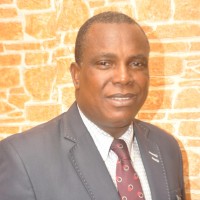…Govt set to unlock $150b dead assets
Most land and properties in the nation are not bankable because they have no titles as a result of little reforms in the sector over the years.
Executive Secretary, Association of Housing Corporation of Nigeria ( AHCN), Toye Eniola told The Nation that in view of the current rising housing deficit, Land Reforms is inevitable, particularly in title documentation procedures and costing so as to make land more easily accessible and simple to promote the mortgage market.
He noted that more that 70 percent of properties in the country are without titles which make them ineligible for mortgage transaction because they are not bankable.
He said : ‘A reform that incorporates seamless procedures with digital central title storage that can be easily be verified online will help to accelerate housing investment and development and expand the mortgage market which will, invariably reduce housing deficit in the country. Regulatory process however should still reside with the government for control purposes’.
In that light Minister of Housing and Urban Development, Ahmed Dangiwa, said his ministry is planning to increase the formalisation of land transactions across the country by 50 per cent over 10 years.
He said the target was to also unlock over $150billion in dead capital to help increase Nigeria’s Gross Domestic Product by 30 per cent.
Dangiwa said, ‘On institutional reforms, the establishment of a National Social Housing Fund, and Building Materials Manufacturing Hubs, we have received the reports of the task teams, reviewed their recommendations internally, and are clear on the next steps’
“Additionally, we have upscaled and expanded our National Urban Renewal and Slum Upgrade Programme in line with the urban development component of our mandate. We currently have over 100 projects completed in several locations nationwide to improve the livability of Nigerians in semi-urban, rural areas, and villages.”
Dangiwa assured that this year would be an action year for the ministry, stressing that the ministry aims to move with speed to get all these reforms off the ground.
We are fully aware that a key part of the ministry’s mandate is policy formulation. In this direction, we have also made notable progress. The ministry worked with UN-Habitat to produce a National Urban Development Policy( NUDP) which is pending presentation and approval by the Federal Executive Council.
“The policy outlines a framework for coordinating a 10-year program of action for sustainable urbanisation in our country. Through this, we aim to domesticate and customise the goals of signed international policies, operationalise national policies in multiple sectors, and create cities that work for all residents. The NUDP is prepared with the objective of harnessing well-managed urbanisation as an engine of growth for the national economy.
He further disclosed that the ministry was working to create a framework for the establishment of a Real Estate Regulatory Authority.

